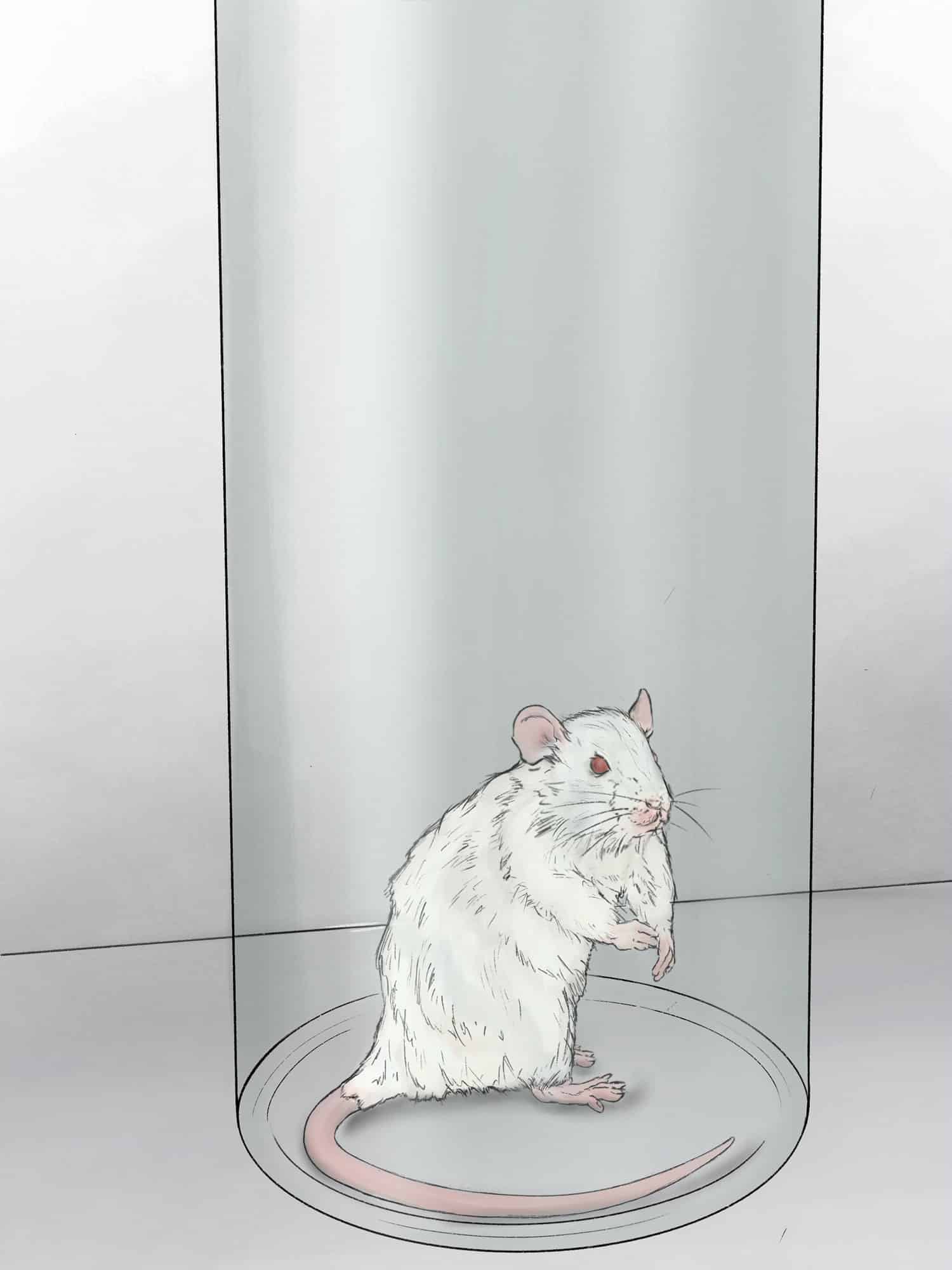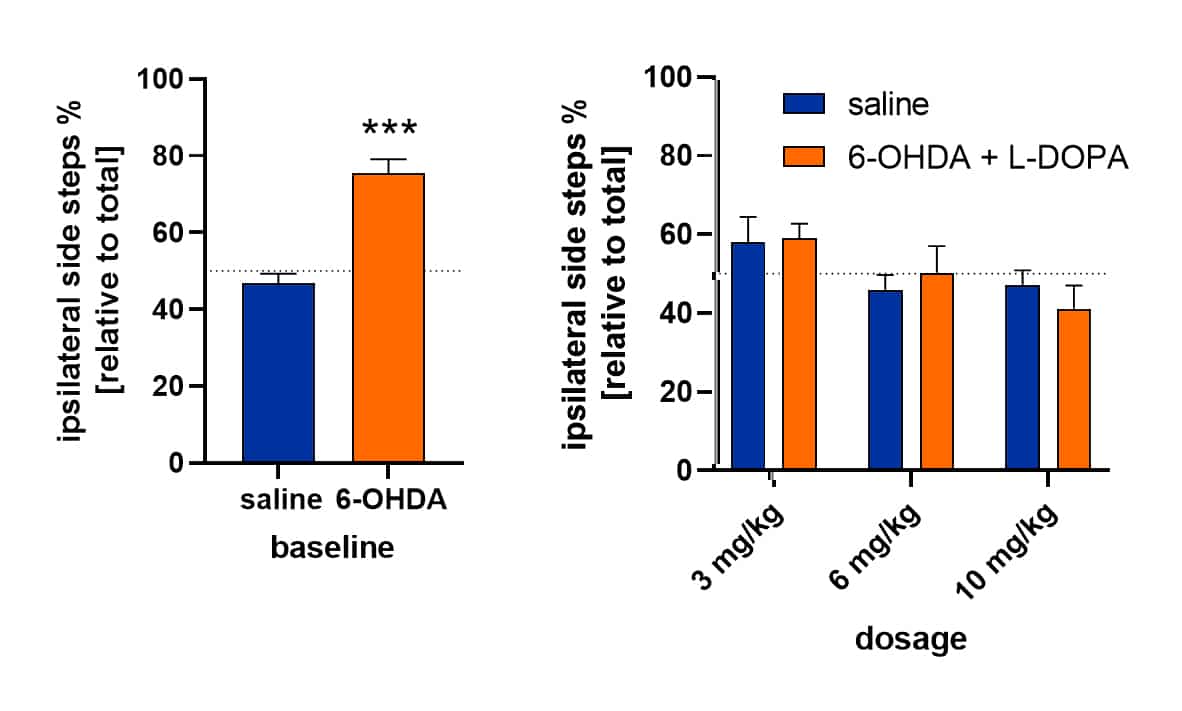
The cylinder test, also known as a paw reach test, is a relatively simple behavioral assessment, originally described by Schallert and Tillerson (2000). It is designed to assess locomotor asymmetry in rodent models of CNS diseases, utilizing naturally occurring behavior. It is most-commonly used in models with a unilateral lesion since dopamine-depleted animals exhibit the preferential use of the fore limb ipsilateral to the lesion. There are several advantages of the cylinder test: habituation of the animals or pretesting is not needed; test is performed rapidly in a single 5-minute session. Moreover, additional stimulation is rarely needed, as the majority of animals start exploring the cylinder on their own by standing on their hindlimbs and using fore limbs to lean on the enclosing walls.
To perform this test, animals are individually placed in an open-top, plexiglass cylinder with a recording camera placed below the cylinder. The cylinder is high enough to prevent animals to escape and wide enough to allow animals to turn around. The duration of the test is five minutes. The experimenter then uses the video recordings to evaluate the number of supporting wall contacts performed with the right and the left paw. Obtained numbers are used to compute a limb-use asymmetry score: usage of the contralateral limb as a percentage of the total performance. An animal with unilateral 6-OHDA lesion uses the paw contralateral to the lesion less for weight-bearing wall contacts, whereas a control animal uses the right and the left paw with similar frequency.
The performance in the cylinder test is improved by L-DOPA treatment, while it is disrupted by the occurrence of dyskinesia, making it a great screening tool for the treatment directed at motor performance. The cylinder test is commonly used in combination with the rotation test and ALO test. The alternative tests that can be used instead of the cylinder test are the corner turn test and corridor turn test.

Figure: Lateralization of hindlimbs use in 6-OHDA-treated animals. Percentage of ipsilateral side steps in 6-OHDA treated animals on baseline (left) and after treatment with various dosages of L-DOPA (right). 6-OHDA: n = 16-19, vehicle: n= 8; mean ± SEM. T-test; ***p<0.001 and two-way ANOVA followed by Bonferroni’s post hoc test.
